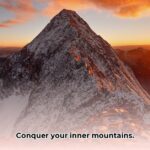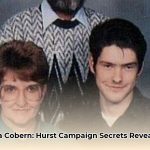Dr. Andrew Huberman, a neuroscientist at Stanford University, has garnered significant attention for his evidence-based approach to sleep optimization. His protocol goes beyond mere supplements, encompassing behavioral modifications, environmental adjustments, and optional targeted supplementation. This comprehensive guide will break down the Huberman Sleep Protocol, providing actionable steps to achieve restorative sleep.
Mastering Your Circadian Rhythm: The Foundation of Healthy Sleep
Huberman emphasizes the importance of aligning your sleep with your natural chronotype. While individual needs vary, maintaining consistency in your sleep-wake cycle is crucial. This reinforces your circadian rhythm, the internal biological clock that regulates various bodily functions, including sleep.
Sunlight and Darkness: Setting Your Internal Clock
- Morning Sunlight: Exposing yourself to sunlight first thing in the morning helps suppress melatonin production and promotes wakefulness, setting the stage for a productive day. This practice effectively calibrates your internal clock, aligning it with the natural day-night cycle.
- Evening Dimness: As evening approaches, reducing light exposure, especially blue light from electronic devices, encourages melatonin production, a hormone essential for sleep. Consider using blackout curtains, dimming lights, and blue light-blocking glasses to create a conducive sleep environment.
Consistent Sleep Schedule: Training Your Body
A regular sleep schedule is paramount to maintaining a healthy circadian rhythm. Try to go to bed and wake up around the same time each day, even on weekends, to reinforce your sleep-wake cycle. This consistency trains your body to recognize when it’s time to wind down and prepare for sleep.
Daytime Naps and Caffeine Intake: Strategic Avoidance
- Daytime Naps: While short naps (20-30 minutes) can be beneficial for some, Huberman suggests avoiding them if you have trouble falling asleep or staying asleep at night. Naps can disrupt your sleep-wake cycle, making it harder to achieve deep, restorative sleep.
- Caffeine Intake: Caffeine, a stimulant, can interfere with sleep. Limit your caffeine consumption, especially in the afternoon and evening. Huberman suggests a limit of 100mg after 4 PM.
The Huberman Sleep Cocktail: An Optional Supplement Protocol
The Huberman Sleep Cocktail, while often highlighted, is an optional element of the overall protocol. It’s designed to potentially enhance sleep quality and duration for some individuals. It’s crucial to remember that it’s not a magic bullet and works best when combined with other healthy sleep habits. Consulting with a healthcare professional is always recommended before introducing new supplements.
Understanding the Ingredients
The Huberman Sleep Cocktail typically includes the following:
- Magnesium Threonate (or Bisglycinate): Magnesium plays a vital role in numerous bodily functions, including sleep. Threonate is believed to cross the blood-brain barrier more effectively, potentially offering enhanced sleep benefits. Alternatively, magnesium bisglycinate, a highly absorbable form, is proposed to relax muscles and reduce anxiety. Dr. Huberman recommends taking one form or the other, not both.
- Theanine: This amino acid, found in green tea, is known for its calming properties and ability to promote relaxation without causing drowsiness. For detailed exploration into other potential calming elements, consider further reading on the intriguing topic of intense aversions as reported by the New York Times.
- Apigenin: A flavonoid found in chamomile and other plants, apigenin may possess calming and sleep-promoting effects.
Dosage and Considerations
While specific dosage recommendations vary, starting with a lower dose and gradually increasing is generally advised. It’s important to listen to your body and adjust accordingly.
Beyond the Cocktail: Additional Sleep Tools from Huberman
Beyond supplements, Huberman advocates several other practices that can significantly impact sleep quality:
Non-Sleep Deep Rest (NSDR):
NSDR involves guided body scans and visualizations designed to promote deep relaxation. This practice can be beneficial for those who struggle to fall asleep or experience frequent awakenings.
Temperature Control:
Maintaining a cool bedroom environment (around 65°F/18°C) can improve sleep quality. Your body temperature naturally drops during sleep, and a cooler room can facilitate this process.
Stress Management Techniques:
Stress and anxiety are common culprits of sleep disturbances. Incorporating stress-reducing practices like meditation, yoga, or deep breathing exercises can help calm the mind and improve sleep. To delve into the intricacies of another system that might influence your mental state, explore our detailed guide on Homestuck Aspects
Addressing Common Sleep Issues with the Huberman Approach
Huberman’s work also sheds light on addressing specific sleep problems:
- Waking Up at 3 AM: Frequently waking up around 3 AM can be a sign of a dysregulated cortisol rhythm. Huberman suggests addressing stress through lifestyle changes and optimizing light exposure to improve cortisol balance and sleep quality.
- Difficulty Falling Asleep: Establishing a consistent wind-down routine, avoiding screens before bed, and creating a relaxing sleep environment can significantly improve sleep onset.
Conclusion: A Holistic Approach to Sleep Optimization
The Huberman Sleep Protocol offers a comprehensive and science-backed approach to sleep optimization. While the sleep cocktail can be a helpful tool for some, the core principles revolve around aligning your lifestyle with your natural circadian rhythm. By prioritizing consistency, optimizing light exposure, and managing stress, you can significantly improve your sleep quality and overall well-being. Remember, finding what works best for you often requires experimentation and personalization. If you’re struggling with chronic sleep issues, consulting with a healthcare professional is always recommended.

















4 thoughts on “The Huberman Sleep Cocktail: Enhance Sleep Quality with This Neuroscience-Backed Formula”
Comments are closed.